
Encountering God in Tyrannical Texts

2015 Frances Taylor Gench
First edition
Published by Westminster John Knox Press
Louisville, Kentucky
15 16 17 18 19 20 21 22 23 2410 9 8 7 6 5 4 3 2 1
All rights reserved. No part of this book may be reproduced or transmitted in any form or by any means, electronic or mechanical, including photocopying, recording, or by any information storage or retrieval system, without permission in writing from the publisher. For information, address Westminster John Knox Press, 100 Witherspoon Street, Louisville, Kentucky 40202-1396. Or contact us online at www.wjkbooks.com.
Except as otherwise indicated, Scripture quotations are from the New Revised Standard Version of the Bible, copyright 1989 by the Division of Christian Education of the National Council of the Churches of Christ in the U.S.A., and are used by permission. Some bold or italic emphasis is added to the NRSV text.
Excerpts from Richard B. Hays, First Corinthians , Interpretation (Louisville, KY: John Knox Press, 1997) are reprinted by permission of Westminster John Knox Press. Excerpts from Deborah Krause 2004, 1 Timothy , Readings: A New Biblical Commentary (London: T&T Clark) are reprinted by permission of Bloomsbury Publishing Plc. Excerpts from Presbyterian Understanding and Use of Holy Scripture . Office of the General Assembly, Presbyterian Church (U.S.A.). 1983 pp. 11, 13. Used by permission.
Book design by Drew Stevens
Cover design by Lisa Buckley Design
Cover art: Mary Magdalene He Qi/www.heqiart.com
Library of Congress Cataloging-in-Publication Data
Gench, Frances Taylor, 1956
Encountering God in tyrannical texts : reflections on Paul, women, and the authority of scripture / Frances Taylor Gench.
pages cm
Includes bibliographical references.
ISBN 978-0-664-25952-5 (alk. paper)
1. WomenBiblical teaching. 2. Bible. New TestamentTheology.
I. Title.
BS2545.W65G46 2015
227'.06dc23
2014050130
 The paper used in this publication meets the minimum requirements of the American National Standard for Information SciencesPermanence of Paper for Printed Library Materials, ANSI Z39.48-1992.
The paper used in this publication meets the minimum requirements of the American National Standard for Information SciencesPermanence of Paper for Printed Library Materials, ANSI Z39.48-1992.
Most Westminster John Knox Press books are available at special quantity discounts when purchased in bulk by corporations, organizations, and special-interest groups. For more information, please e-mail SpecialSales@wjkbooks.com.
FOR MY HUSBAND
Roger Joseph Gench
Contents
(1 Timothy 2:815)
(Ephesians 5:2133)
(1 Corinthians 11:216)
(1 Corinthians 14:33b36)
(1 Timothy 5:316)
(Romans 16:116)
This project has had a protracted birth process, and thus many people have contributed to it by providing invaluable feedback along the way. First and foremost, I wish to record my appreciation for the opportunity to deliver the Zenos Lectures at McCormick Theological Seminary in February 2011 and to thank its faculty and then-president Cynthia Campbell for their hospitality and for providing the initial impetus for this project. I am grateful to have had opportunities to share material in this volume as it developed further with other groups in a variety of academic, ecclesial, and retreat settings: the Ethics and Biblical Interpretation Section of the Society of Biblical Literature; the 2011 National Conference of The Covenant Network of Presbyterians; Presbyterian pastors in the Synod of the Southwest at Ghost Ranch, New Mexico; Ring Lake Ranch, Wyoming; Spring Academy at Gettysburg Lutheran Seminary; the Susan R. Andrews Lecture on Progressive Theology at Bradley Hills Presbyterian Church, Bethesda, Maryland; the John Haddon Leith Lecture Series at First Presbyterian Church, Auburn, Alabama; the Royster Lecture Series at First Presbyterian Church, Henderson, North Carolina; Theology Weekend at First Presbyterian Church, Spartanburg, South Carolina; Spring Symposium at First Presbyterian Church, Burlington, North Carolina; Enrichment Series Weekend at Sardis Presbyterian Church, Charlotte, North Carolina; Scholar in Residence weekend at First Presbyterian Church Howard County, Columbia, Maryland; and at a Congregational Retreat of Capital Hill Presbyterian Church, Washington, D.C. My ever-inspiring home congregation, The New York Avenue Presbyterian Church in Washington, D.C., also has provided a variety of lively forums for discussion of all the texts featured in this book throughout my writing of it.
I owe a debt of gratitude to Westminster John Knox Press and to Marianne Blickenstaff, Bridgett Green, and Julie Tonini for shepherding this project at different stages. I am deeply grateful to the administration and Board of Trustees of Union Presbyterian Seminary, Richmond, Virginia, for a sabbatical period during which much of the research and writing was completed, and to my faculty colleagues for thoughtful collective feedback on this material as it initially developed. Students at Union Presbyterian Seminary have been primary conversation partners throughout the writing of this book, and I have been instructed in important ways by their close engagement with the biblical texts featured in this volume.
Finally, fine friends have provided encouragement and consultation at important points along the way: the Revs. Jenny McDevitt and Lindy Vogado; and the Rev. Drs. Cynthia Rasmussen, Holly Hearon, and Richard Carlson. This volume is dedicated to my best friend and beloved husband, Roger Joseph Gench, with gratitude for his unflagging encouragement and support and for the enormous blessing his partnership in marriage and ministry represents in my life every single day.
Frances Taylor Gench
If reading the Bible does not raise profound problems for you as a modern reader, then check with your doctor and inquire about the symptoms of brain-death.
Robert P. Carroll
I have loved the Bible and been in conversation with it for as long as I can remember. In fact, my relationship with it was established well before I could read, and my earliest impressions of it were formed by a songone of the first taught to me by my parents and grandparents and legions of faithful Sunday school teachers: Jesus Loves Me, This I Know, for the Bible Tells Me So. The words of that song impressed themselves upon my mind and heart throughout my Wonderbread years and led me to embrace the Bible as the story of a love affairthe story of the love that God in Christ had for me, for all people around the world, and for the whole creation. That conviction became foundational for all my later encounters with the Bible and is one I have never relinquished.
But loving the Bible and sustaining a lifelong relationship with it does not entail checking ones brain at the door. It does not require agreement with, or acquiescence to, everything it has to say. In fact, many thoughtful people who honor the Bible nonetheless relate to Robert Carrolls frank observation: reading an ancient document like the Bible cannot help but raise profound problems for them. And among those problems (and the one that will concern us in this volume) are tyrannical textsthat is, texts that have proved to be profoundly oppressive in the lives of many people. The Bible is a profoundly liberating document, but there is no denying that it also contains deeply problematic textsindeed, texts of terror that have adversely impacted the lives of women, slaves, Jews, Palestinians, Native Americans, and gays (to mention but a few). Such texts and prevalent interpretations of them may be described as tyrannical in the sense that they have legitimated the right of some to exercise unjust power or control over others. They are tyrannical in the sense that they have circumscribed human lives and possibilities, functioning (and in many cases, continuing to function) as instruments of oppression.
Next page

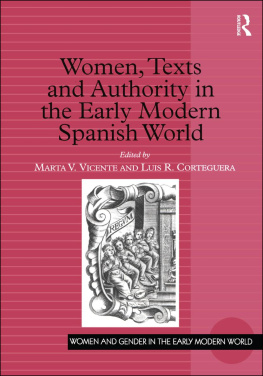
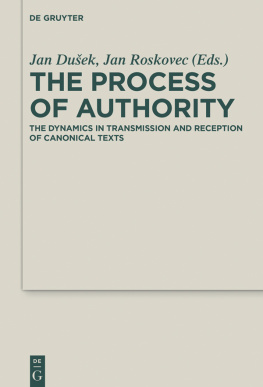
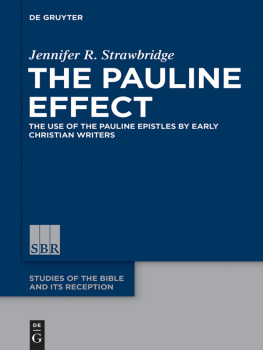
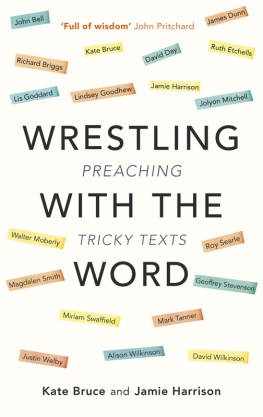

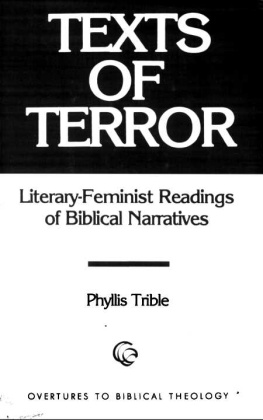
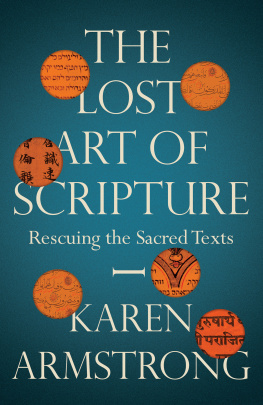
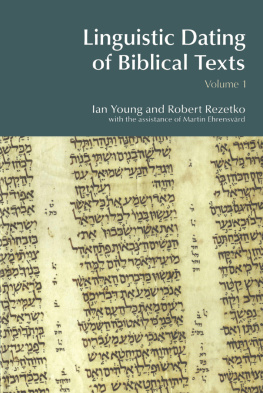
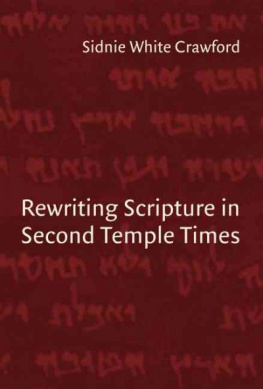


 The paper used in this publication meets the minimum requirements of the American National Standard for Information SciencesPermanence of Paper for Printed Library Materials, ANSI Z39.48-1992.
The paper used in this publication meets the minimum requirements of the American National Standard for Information SciencesPermanence of Paper for Printed Library Materials, ANSI Z39.48-1992.